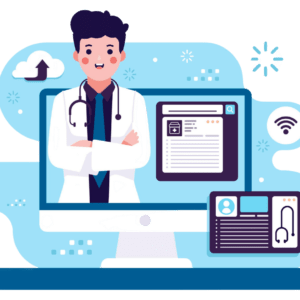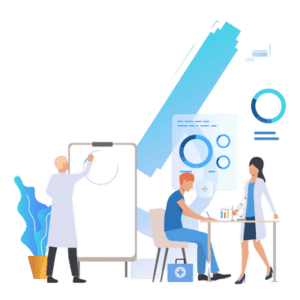The Economic Benefits of Investing in EMR Technology
In today’s healthcare landscape, efficiency and cost-effectiveness are paramount. One significant technological advancement that addresses these needs is the Electronic Medical Record (EMR) system. Investing in EMR technology, such as the solutions provided by CalvinEMR, offers numerous economic benefits for healthcare providers. Here’s how implementing an EMR system can lead to substantial cost savings and improved financial performance.
Reduced Administrative Costs
One of the most immediate economic benefits of implementing CalvinEMR systems is the reduction in administrative costs. Traditional paper-based systems require significant resources for printing, storage, and management of physical records. EMR systems eliminate these costs by digitizing patient records, thereby reducing the need for paper, physical storage space, and administrative personnel to manage these records. This transition results in direct savings on supplies and operational expenses.
Increased Efficiency and Productivity
CalvinEMR systems streamline various administrative tasks, such as scheduling, billing, and record-keeping. By automating these processes, healthcare providers can significantly reduce the time and effort spent on administrative duties. This increased efficiency allows healthcare professionals to focus more on patient care, leading to higher productivity and the ability to see more patients. The ability to serve more patients effectively translates to increased revenue for healthcare facilities.
Improved Billing and Revenue Cycle Management
Accurate and timely billing is crucial for maintaining a healthy revenue cycle. CalvinEMR systems ensure that patient information and billing codes are accurate, reducing the likelihood of errors that can lead to claim denials and delays. EMRs also facilitate faster claims processing and reimbursements by providing timely and accurate documentation required by insurance companies. This efficiency in billing and revenue cycle management enhances cash flow and reduces the time spent on resolving billing issues.
Enhanced Quality of Care and Patient Satisfaction
Investing in CalvinEMR technology not only improves operational efficiency but also enhances the quality of care provided to patients. EMR systems provide healthcare providers with comprehensive patient information, enabling more accurate diagnoses and personalized treatment plans. Higher quality care leads to better patient outcomes and increased patient satisfaction. Satisfied patients are more likely to return for future care and refer others, contributing to increased patient volumes and revenue.
Reduction in Duplicate Testing and Procedures
Duplicate tests and procedures are a significant source of unnecessary healthcare costs. CalvinEMR systems provide a centralized repository of patient information accessible to all authorized healthcare providers involved in a patient’s care. This comprehensive access reduces the likelihood of redundant tests and procedures, resulting in cost savings for both healthcare providers and patients.
Improved Compliance and Risk Management
Compliance with regulatory requirements and managing risks associated with patient data are critical concerns for healthcare providers. CalvinEMR systems are designed to comply with industry standards such as HIPAA, ensuring that patient data is secure and managed according to legal requirements. By reducing the risk of data breaches and non-compliance penalties, EMR systems protect healthcare providers from potential financial losses associated with legal and regulatory issues.
Long-Term Cost Savings
While the initial investment in CalvinEMR technology may seem substantial, the long-term cost savings are significant. Over time, the reduction in administrative costs, increased efficiency, and improved billing processes contribute to a positive return on investment. Additionally, the ability to provide higher quality care and enhance patient satisfaction can lead to increased patient retention and referrals, further boosting revenue.
Conclusion
The economic benefits of investing in EMR technology, such as the solutions offered by CalvinEMR, are clear. From reducing administrative costs and increasing efficiency to improving billing processes and enhancing patient care, EMR systems provide substantial financial advantages for healthcare providers. As the healthcare industry continues to evolve, investing in EMR technology is a strategic move that promises significant long-term economic benefits. For healthcare providers looking to enhance their financial performance while delivering superior patient care, CalvinEMR offers the advanced solutions needed to achieve these goals.




